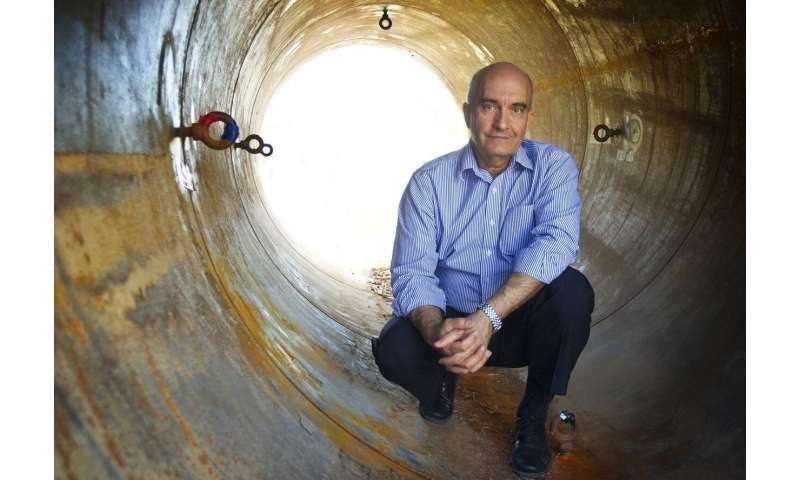National study aims to assist water utilities

A University of Texas at Arlington civil engineering researcher is leading a nationwide study to find and assess innovative technologies for monitoring water assets.
Mohammad Najafi, associate professor of civil engineering, is using a $410,000 grant from the Water Research Foundation for the project.
"We hope to streamline water asset monitoring so water utilities can make timely decisions and optimize their maintenance activities," Najafi said. "We will investigate the utilization of existing and innovative asset-monitoring technologies—such as drones, sensors, fiber optics and more—for both horizontal and vertical assets. Considerations for both large and small water utilities will be given."
Other water entities involved in the project include DC Water, Los Angeles County Sanitation Districts, CDM Smith, Dallas Water Utilities, Greater Cincinnati Water Works, Dallas County, Tarrant Regional Water District, WaterOne, American Water, WSSC Water, Great Lakes Water Authority, Orange County Utilities, San Diego County Water Authority and Underground Infrastructure.
Vinayak Kaushal, assistant professor of civil engineering, will serve as co-principal investigator. Zahra Borhani, program manager at the Center for Underground Infrastructure Research and Education (CUIRE), and Diego Calderon, a doctoral candidate, are part of the UT Arlington team for this project. Najafi leads CUIRE, a research, education and outreach organization that is part of UT Arlington's Department of Civil Engineering. Since its inception, it has focused on assembling exceptional and broad-reaching engineering and technical talent to address the needs of underground infrastructure on regional, state, national and international scales.
The project will perform a comprehensive literature review on the topic, hold conferences and webinars among water utilities and industry leaders, provide case studies of what is available and make recommendations and guidelines on what to use in the future. Najafi will look at above-ground water infrastructure like reservoirs and dams, as well as below-ground infrastructure like pipes and mains.
Najafi said the project will identify gaps in water utility monitoring and make recommendations to fill them.
"Water monitoring now consists of using sensors, drones, fiber optics and advanced metering infrastructure. Other technologies are on the market and currently being used, but not by everyone," he said. "We hope to issue a best practices guideline for water entities."
Melanie Sattler, chair of the Department of Civil Engineering, said Najafi's project will give water entities better information now and in the future.
"Water monitoring is essential to providing the resources needed for life and growth. This project does just that," Sattler said. "Knowing how much water you have is vital to planning for the future."
Provided by University of Texas at Arlington